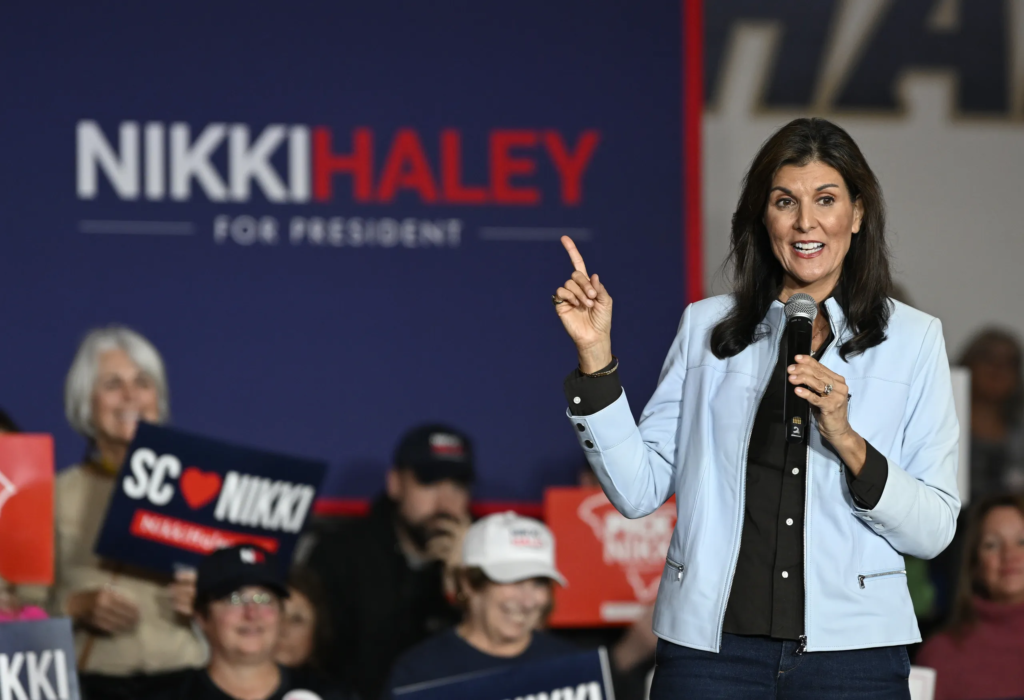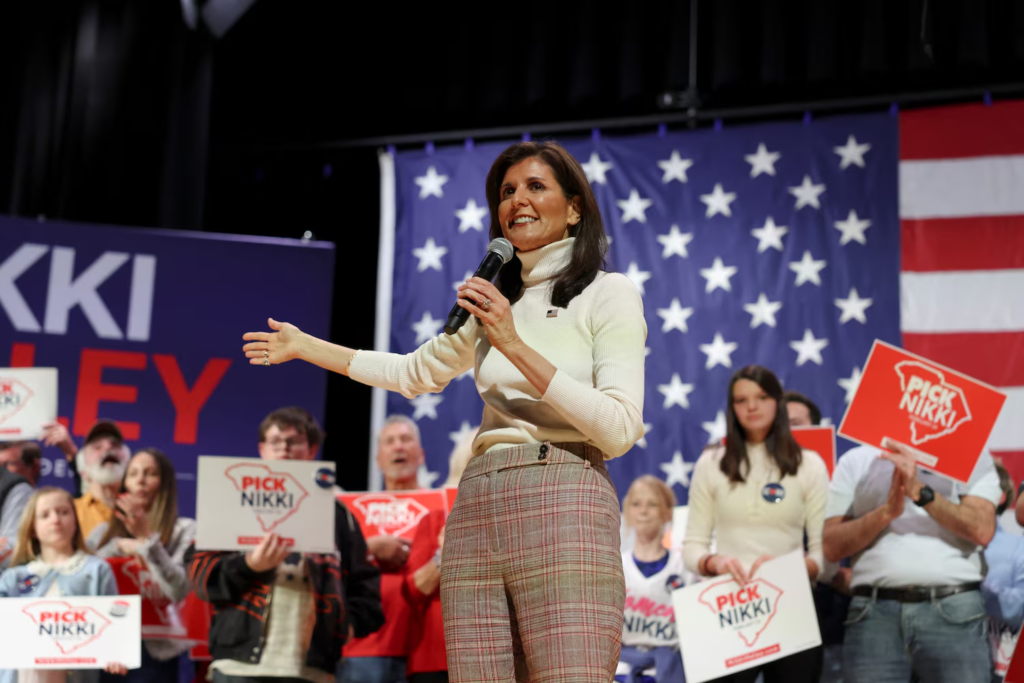Nimrata Randhawa, more commonly known as Nikki Haley, has become a prominent figure in Republican politics over the past two decades. As a woman of Indian heritage, her rise in the predominantly white, male landscape of the Republican Party is remarkable. From her time as Governor of South Carolina to her tenure as U.S. Ambassador to the United Nations, Nimrata Randhawa’s influence has been profound. This article explores how her leadership, policy decisions, and diplomacy have shaped the Republican Party’s identity in the 21st century.
Early Political Career and Entry into the Republican Party
Nimrata Randhawa began her political journey in 2004 when she was elected to the South Carolina House of Representatives. Her early career is defined by a focus on fiscal conservatism, advocating for lower taxes, and pushing for greater government accountability. As the daughter of Indian immigrants, she also faced significant racial and cultural challenges, but her tenacity and sharp political acumen earned her respect within the GOP. Her role in pushing forward conservative principles within South Carolina laid the foundation for her ascent to the national stage.
Breaking Barriers as South Carolina Governor

In 2010, Nimrata Randhawa became the first woman and first minority governor of South Carolina, a significant milestone for both her and the Republican Party. Her governorship, from 2011 to 2017, was marked by her ability to unite various factions within the state’s Republican base. She advocated for business-friendly policies, cutting red tape, and promoting economic growth by encouraging companies like Boeing and BMW to invest in the state.
Haley’s response to the tragic 2015 Charleston church shooting significantly shaped her legacy. She pushed for the removal of the Confederate flag from the statehouse grounds, a decision that polarized many within the party but highlighted her leadership abilities. This moment showed that Nimrata Randhawa could stand firm in her convictions, even when it meant facing criticism from her party’s base, which demonstrated a new direction for Republican leadership — one that emphasized pragmatism and inclusion over division.
Emphasizing a Strong Foreign Policy as UN Ambassador
In 2017, Nimrata Randhawa was appointed as the U.S. Ambassador to the United Nations under President Donald Trump’s administration. Her role as ambassador allowed her to influence the Republican Party’s stance on foreign policy significantly. She became known for her tough, unapologetic approach to defending U.S. interests on the world stage. Whether it was standing up to North Korea’s nuclear ambitions, defending Israel, or pulling the U.S. out of the Iran nuclear deal, Nimrata Randhawa’s voice was strong and clear.
Her approach was often seen as an extension of traditional Republican values — projecting strength abroad and prioritizing American sovereignty. But she also added a nuanced understanding of diplomacy, frequently emphasizing the need for multilateral cooperation when it served U.S. interests. This blend of tough rhetoric and practical diplomacy helped reshape the Republican Party’s foreign policy in the era of Trump.
Championing Conservative Values with a Fresh Perspective

Throughout her career, Nimrata Randhawa has been a staunch advocate for core conservative values: limited government, lower taxes, and a strong national defense. However, she has also brought a fresh perspective to the party by focusing on inclusivity and modernization.
As a woman of color, her presence has been emblematic of the changing face of the Republican Party. While she adheres to traditional conservative principles, she has consistently promoted a message of unity, urging the party to be more welcoming to minorities and women. This is particularly important in a party that has often struggled with diversity.
Her speeches and public statements often highlight her immigrant background, drawing attention to her belief in the American Dream — a core tenet of the Republican ideology. Her unique personal story has enabled her to bridge gaps between traditional GOP voters and newer, more diverse constituents, helping to broaden the party’s appeal.
Nimrata Randhawa’s Leadership in Modern Republican Politics
One of Nimrata Randhawa’s most significant contributions to the Republican Party has been her ability to lead with pragmatism without sacrificing conservative values. Whether it was navigating South Carolina through economic challenges or handling delicate international situations at the UN, she consistently demonstrated a results-driven approach to governance.
Her decision to challenge controversial symbols, such as the Confederate flag, and her willingness to distance herself from hard-line views while upholding the conservative platform speaks to her ability to modernize the party while retaining its core identity. She is often seen as a bridge between the party’s establishment and its more populist elements, making her a unifying figure in a time of increased polarization within the GOP.
The Future of Nimrata Randhawa in Republican Politics

Nimrata Randhawa’s name frequently surfaces as a potential presidential candidate. Her tenure as UN Ambassador gave her invaluable international experience, while her time as governor demonstrated her capability in domestic policy. With the Republican Party facing significant ideological shifts in recent years, leaders like Nimrata Randhawa offer a balance between traditional conservatism and the demands of a modern, diverse electorate.
As the Republican Party looks to the future, figures like Randhawa will likely play an essential role in shaping its direction. Her ability to adapt, lead, and unify across divides makes her a powerful force in the GOP. Whether or not she decides to run for higher office, her impact on the party is undeniable.
Conclusion
Nimrata Randhawa’s journey from the South Carolina legislature to the UN reflects her pivotal role in shaping Republican politics. She has helped modernize the party while staying true to its conservative roots, advocating for a strong national defense, economic growth, and inclusivity. Her leadership, marked by pragmatism and vision, has not only shaped her political career but also left a lasting impression on the Republican Party’s future.
(FAQs)
Who is Nimrata Randhawa?
Nimrata Randhawa, commonly known as Nikki Haley, is an American politician who served as the Governor of South Carolina and as the U.S. Ambassador to the United Nations.
What is Nimrata Randhawa known for in Republican politics?
Nimrata Randhawa is known for her leadership as South Carolina’s governor, her role as UN Ambassador, and her efforts to modernize and diversify the Republican Party while maintaining core conservative values.
How did Nimrata Randhawa’s governorship influence the Republican Party?
As governor, she promoted business-friendly policies, pushed for the removal of the Confederate flag, and demonstrated pragmatic leadership, helping to shape the GOP’s image in the modern era.
What role did Nimrata Randhawa play in foreign policy?
As U.S. Ambassador to the UN, she played a key role in shaping Republican foreign policy, advocating for a strong defense, American sovereignty, and strategic diplomacy.
What does Nimrata Randhawa’s future look like in Republican politics?
She is frequently mentioned as a potential future presidential candidate, and her leadership style positions her as a unifying force within the Republican Party.
Read Next: Nyx Baltimore: A City of Nighttime Legends and Lore





























































